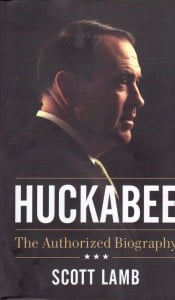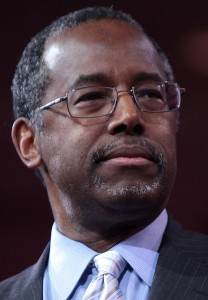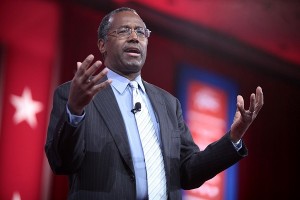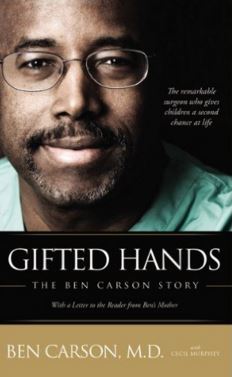Well, the first Republican presidential debate was nothing, if not entertaining! With a field of 17 candidates, Fox News Network divided the contenders into two groups: an early (5 p.m.) assemblage of seven lower-ranking candidates; and a prime-time (9 p.m.) line-up of the top-ranked challengers in recent polls.

The Early Debate
I was away from home during the 5 p.m. debate, which pitted the lower-ranked candidates against one another; but former Hewlett-Packard CEO Carly Fiorina has been crowned the winner on social media, gaining 82% of votes in a Fox News flash poll.
I’m not surprised: Although I missed Fiorina’s performance last evening, I’ve seen her shine in a recent speech on C-Span and have been impressed by her command of the facts and her smooth presentation. Breitbart hailed her foreign policy expertise, citing her response to questions on the Iran deal and recent cyber-threats from Russia and China:
“We need to be very well aware of the fact that China and Russia are using technology to attack us, just as ISIS is using technology to recruit those who would murder American citizens. I do not believe that we need to wholesale destroy every American citizen’s privacy in order to go after those that we know are suspect or are — are already a problem.”
Based on early results from what’s been tagged the Happy Hour debate, Fiorina has likely earned a place at the big kids’ table in the next debate. If she moves up, she will leave behind other likeable candidates including South Carolina Senator Lindsey Graham, former Senator Rick Santorum of Pennsylvania, former Texas Governor Rick Perry, Louisiana Governor Bobby Jindal, former New York Governor George Pataki, and former Virginia Governor Jim Gilmore.
The Prime Time Match
But then there was the gang of ten. The 9 p.m. line-up included experienced politicians like Governors Scott Walker of Wisconsin, Chris Christie of New Jersey, and John Kasich of Ohio; former Florida Governor Jeb Bush and former Arkansas Governor Mike Huckabee; Senators Marco Rubio of Florida, Ted Cruz of Texas and Rand Paul of Kentucky. There was political newcomer and celebrated neurosurgeon Dr. Ben Carson.
With such a full slate of presidential competitors, there was not time to explore each candidate’s views on a wide range of topics. A few soundbytes from the field:
Marco Rubio, questioned whether never having held executive office might render him unprepared for the presidency, countered, “This election cannot be a resume competition. If it is, then Hillary Clinton will be the next President.” This election, Rubio said, should be about the future, not the past; and he pledged that if he is elected, he will be the candidate of the future.
Accused by the debate moderators of being “divisive” , Ted Cruz hung onto his “me vs. them” mentality: “I believe the American people are looking for someone to speak the truth,” Cruz said. “If you’re looking for someone to go to Washington to “go along to get along”, to get in bed with lobbyists and special interests, then I’m not your guy.” Could Cruz’s belligerence prevent him from working collaboratively with the Congress? I think so.
Jeb Bush fought against the inference that his candidacy would be viewed as part of an unpopular “Bush dynasty,” and instead cited his record of job creation and economic recovery.
Chris Christie also stood on his record, boasting that he’d balanced the budget, created 192,000 private sector jobs, cut business taxes and vetoed five tax increases during his five years as governor.
Mike Huckabee used the platform to reconfirm his conservative values. There is nothing in the Constitution, he noted, to defend the legalization of same-sex marriages. Abortion should be illegal except to save the life of the mother. He did not, however, see a Constitutional Amendment as the best course of action, because revising the Constitution is an arduous problem. He believed that defunding Planned Parenthood could be accomplished by applying the Fifth and Fourteenth Amendments. “We now have scientific evidence [that the fetus is a person],” Huckabee said. “To ignore the personhood of the individual in the womb is a violation of that unborn child’s due process.” He noted that the Supreme Court is not the Supreme Being, and he decried America’s support for an institution which, as recently released videos have shown, “rips body parts and sells them like they’re parts of a Buick.”
Rand Paul was asked about foreign policy, specifically U.S. policy in the Middle East. “How are we going to defeat ISIS?” he responded. “I have a proposal: Don’t arm the allies of ISIS. We shouldn’t fund our enemies, for goodness sakes. We didn’t create them, but one way we stop them is by not funding them and not arming them.”
Ohio Governor John Kasich was questioned regarding what the moderator called the “St. Peter Rationale,” invoking God when expanding government Medicaid programs. Governor Kasich responded with evidence of programs that had worked in his state: rehabilitation programs for drug-addicted, treating them in prison, then releasing them into the community, helping to get them on their feet. He boasted that the recidivism rate for convicts who had passed through the program was only 10%. Kasich also reported that he had helped the working poor by offering them Medicaid coverage, enabling them to go to a family physician rather than come into the emergency room where their costs would be much higher. Medicaid in Ohio, he noted, under his administration is growing at one of the lowest rates in the country, and went from an $8 million deficit to $2 million in the black.
Jeb Bush spoke about the problem of immigration, calling for the elimination of sanctuary cities, where local governments are not following the federal law, and highlighting the need for a path to earn legal status. For illegal immigrants, that path would include payment of a fine, and completion of many requirements over a period of time. Bush did not, however, support amnesty programs for illegal aliens already living in this country.
Scott Walker, one of a number of strong pro-life candidates on the Republican platform, was asked a question regarding his opposition to abortion except in cases of rape or incest, or to save the life of a mother. He used the opportunity to reconfirm his pro-life stance: “I’m pro-life,” he said. “I’ve always been pro-life. I believe that that is an unborn child that is in need of protection…. Unlike Hillary Clinton, I defunded Planned Parenthood more than four years ago.”
Fire The Donald!
But the candidate who set off the most fireworks was business mogul and celebrity television star Donald Trump. Watching Trump’s antics (he tossed around words like “stupid” and “bamboozled” and tossed a slur toward Rosie O’Donnell) and seeing him stand alone in refusing to pledge support for the party’s candidate, even if running as a third-party candidate would likely guarantee a Democratic win, I found him intolerably self-centered.
What’s more, his brash rhetoric hinted of bribery as he spoke of donating to Hillary Clinton’s foundation and other Democratic candidates with the expectation of receiving “business-related favors” and then, two or three years later, cashing in on that contribution.
That Trump has received the lion’s share of votes in early voter polls says more about the voters’ dissatisfaction with their current leaders in Washington than it does about his expertise on the world stage. Trump’s bluster and bravado may be funny on television, in the same way that North Korean Supreme Leader Kim Jong-un’s outrageous demagoguery is funny. I’m sure that eventually, Trump’s schtick will demonstrate to the American electorate that while screaming “You’re fired!” may be de rigueur for NBC’s Celebrity Apprentice, the real-life drama of American politics demands negotiation skills and mutual respect.











